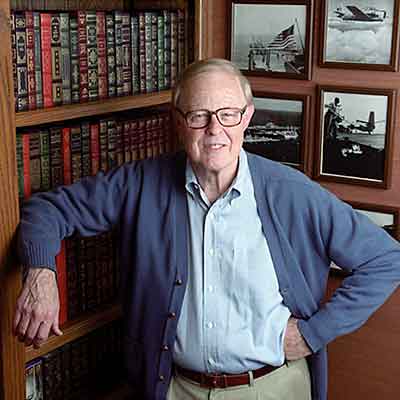 Peter A. Corning, Ph.D., was born in Pasadena, California. He received his undergraduate education at Brown University, after which he served as a naval aviator and as a science writer at Newsweek magazine for two years before returning to graduate school at New York University to complete an interdisciplinary social science-life science doctoral degree. He subsequently won an NIMH post-doctoral fellowship for training and research at the Institute for Behavioral Genetics at the University of Colorado, following which he taught for nine years in the Human Biology Program at Stanford University while also holding research appointments in Stanford’s Behavior Genetics Laboratory and Engineering-Economic Systems Department.
Peter A. Corning, Ph.D., was born in Pasadena, California. He received his undergraduate education at Brown University, after which he served as a naval aviator and as a science writer at Newsweek magazine for two years before returning to graduate school at New York University to complete an interdisciplinary social science-life science doctoral degree. He subsequently won an NIMH post-doctoral fellowship for training and research at the Institute for Behavioral Genetics at the University of Colorado, following which he taught for nine years in the Human Biology Program at Stanford University while also holding research appointments in Stanford’s Behavior Genetics Laboratory and Engineering-Economic Systems Department.
For the past three decades, Dr. Corning has served as the director of the non-profit Institute for the Study of Complex Systems. He has published numerous research papers and articles over the years, as well as nine books — one of which was a theoretical monograph on the role of synergy in evolution entitled: The Synergism Hypothesis: A Theory of Progressive Evolution (McGraw-Hill, 1983). His most recent books are The Fair Society: The Science of Human Nature and the Pursuit of Social Justice (University of Chicago Press 2011), Synergistic Selection: How Cooperation Has Shaped Evolution and the Rise of Humankind (World Scientific 2018), Superorganism: Toward a New Social Contract for Our Endangered Species (Cambridge University Press 2023), and Evolution ‘On Purpose’: Teleonomy in Living Systems (the MIT Press 2023).
Dr. Corning is also a member of numerous professional scientific organizations and has lectured widely at academic institutions in the U.S. and in Europe. He is a Past-President of the International Society for the Systems Sciences, Treasurer of the International Society for Bioeconomics and a member of the board of directors of the Association for Politics and the Life Sciences. He was also on the board of directors of the Epic of Evolution Society and an actively contributing member of the International Society for Human Ethology, the Human Behavior and Evolution Society, the International Society for Endocytobidology, the European Sociobiological Society, the International Association for Cybernetics, and the Evolution Institute. In 1996, he was also the recipient of a research fellowship in evolutionary biology at the Collegium Budapest (an international institute for advanced study) in Hungary.
